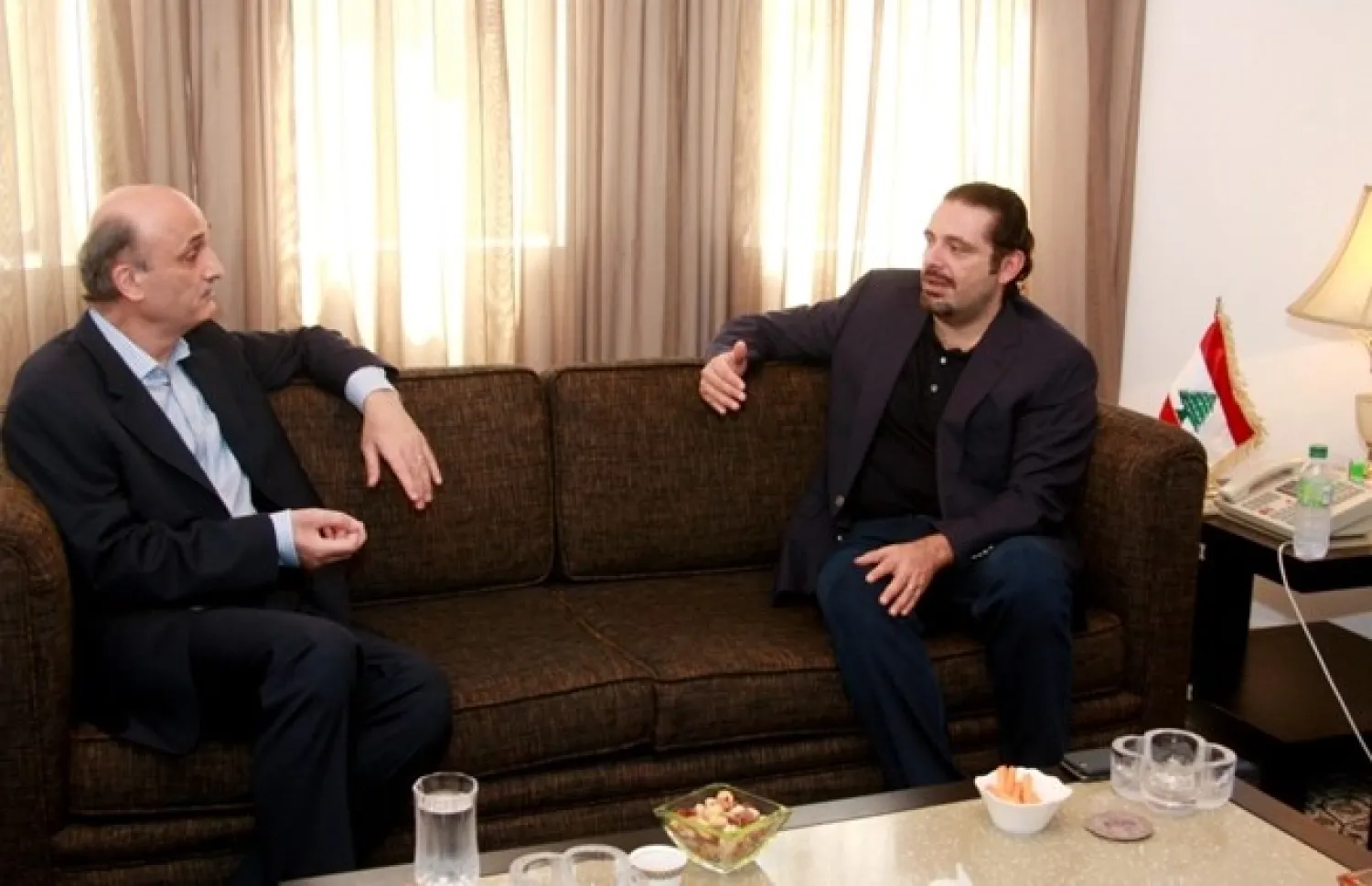The current conflict between Future Movement and Lebanese Forces (LF) intensified after a period of "give and take" through back channels and unnamed sources.
The relationship deteriorated after Prime Minister Saad Hariri announced his resignation and accusations followed stating that Lebanese Forces didn't support him.
What contributed to the growing controversy was Hariri's announcement earlier this week that some political parties wanted to secure their place during this crisis by "backstabbing" allies.
Hariri threatened "to call things by their names" and "spill the beans" during a television interview before retreating and postponing the interview.
But what Hariri did not say was said by the Secretary-General of Future Movement, Ahmed Hariri, who raised several questions about the government's performance.
"We need answers," said Ahmed Hariri. His statement was not well received among the Lebanese Forces which reflected in a debate between officials and leaders in both parties and between supporters on social networks.
Lebanese Forces MP, Antoine Zahra, stressed that the statements of Ahmed Hariri are completely unacceptable, pointing out that it is shameful to direct remarks or even questions about the performance of the Forces.
"We do not owe anyone an explanation or apology, and we are only responsible before the Lebanese people," Zahra told Asharq al-Awsat.
MP Zahra said there was a national and official consensus on the outstanding and transparent performance of LF ministers, which enables them to question and not be questioned.
"Should we explain our commitment to the constitution and regulations?" wondered Zahra.
When asked whether everything is broken between LF and Future, Zahra replied: "This issue is up to Prime Minister Hariri and no one else, since we rely on what he personally says."
He went on to say that Lebanese Forces and Future Movement have agreed on one project in politics since before the assassination of Prime Minister Rafiq Hariri, and therefore any continuity in their political companionship will be determined upon Hariri's adherence to national principles.
A number of Future MPs preferred to wait to comment on the matter, stressing that the final word should be left to Prime Minister Hariri.
A source in the Future Movement told Asharq Al-Awsat that surely things are getting more difficult, but PM Hariri will have the last say in this.
Deputy Prime Minister and Minister of Health Ghassan Hasbani stressed that Lebanese Forces has no idea what Hariri was planning to uncover, adding: "we are relying on political rationality to reach stability."
Speaking during a radio interview, Minister Hasbani stated that some were trying to create a rift, indicating that it is within the right of Lebanese Forces to question the reason behind this attack on it.
"We want to know what is the purpose of the attack [on Lebanese Forces]? Is it to divert attention away from dissociation policy?" Hasbani inquired.
Head of LF communications and media department Charles Jabbour described Ahmed Hariri's statements as "unacceptable at all".
"As far as I know, Samir Geagea did not request an appointment to meet with Hariri, and who said Geagea wanted to meet with PM Hariri?" questioned Jabbour.
Responding to Jabbour, Future Movement Media Official Abdulsalam Moussa said in a statement that Jabbour seems to have read Ahmed Hariri's statement in reverse and didn't see any positivity.
Moussa added that if Jabbour was provoked by Sec-Gen Hariri's request to clarify the previous stage, this doesn't consider previous calls for rationing the relations if they need any.
"In any case, we will consider as if Mr. Jabbour's reaction didn't happen because the relationship with LF is much deeper to be dealt with by such rhetoric," concluded Moussa.









